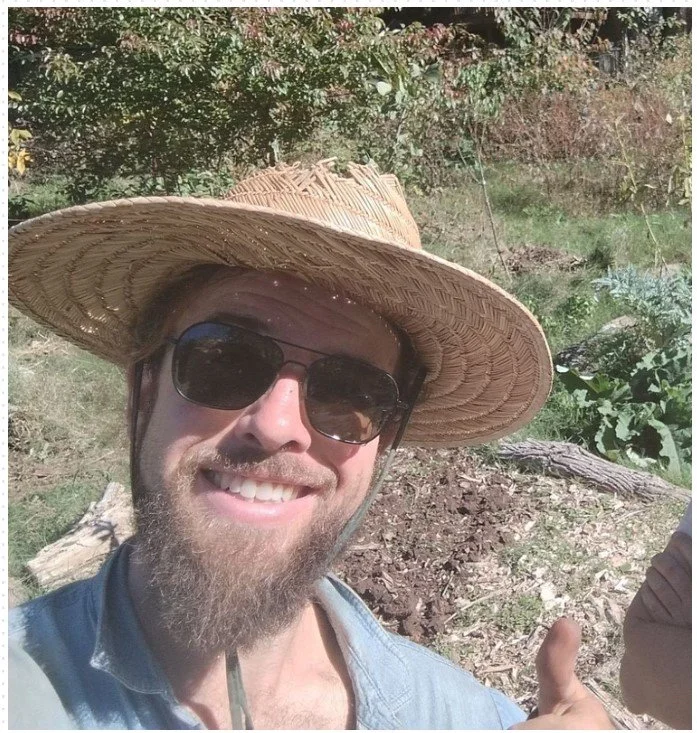Since coming to serve as Nursery Manager at Growing Value Nursery, Howard “Howie” Zuefle has proved himself to be invaluable to Cincinnati Permaculture Institute on so many levels: teacher, nursery manager, advisor, designer, installer, consultant, guide, friend. He wears these hats as easily as he wears his winning smile. He says he owes it all to his basic desire to eat well. Wild forage of food and organic growing of food are among his many passions and pathways to that end.
His knowledge and experience, combined with his community network in East Price Hill, and other Cincinnati neighborhoods, made him the likely force with both the “Seeds of Change” and the “Boots on the Ground” programs, funded by grants we received in 2024-25. He rather single-handedly consulted, designed, selected, instructed, and installed alongside more than a dozen of our 27 Food Champions at their sites.
All while he was creating and managing the perennial edible nursery stock at CPIs Growing Value Nursery. He takes skillful care of our plants, the high quality of which continues to be praised by GVN customers.
More on Howard Zuefle in his own words:
Howard has been on his journey to find a way of living that integrates our human role in our local ecology for a good while now. For him it took a car accident to motivate him to look beyond the quick fixes mainstream culture throws at us.
The journey started in studying neuroscience and psychology at University of Cincinnati. Then a clear need to be outside took the steering wheel, which brought an internship at the Civic Garden Center, a Permaculture Design Course with CPI, Foraging Mentors, Farming Mentors, and the rich Earth centered community of Cincinnati into his life.
That was all on the going towards the connection with nature outside of himself part; there was also a coming into his own nature side of the journey by integrating the experience, which has involved embodiment practices, somatic experiencing, yoga, grounding/earthing, and learning to stay with the uncomfortable parts of living.
Finding local food, water, and the community that it takes to allow those to happen has been another major variable on the journey. When one finds real food and the nourishing feeling that accompanies it there is no going back.
Howard is always looking to do Permaculture consultations, Botanical surveys, Nature Education, lead Foraging excursions and support others on their journey to a harmonious way of living. You can email him at HowGround@proton.me.




